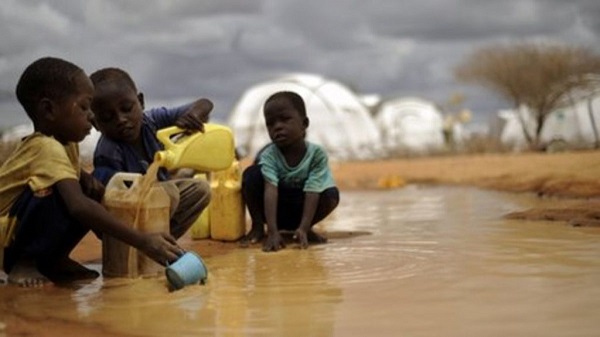
There is cholera outbreak in several parts of the country with reported cases of fatalities. The outbreak is a seasonal public health event in the country, occurring annually mostly during the rainy season and more often in areas with poor sanitation and hygiene practices.
Cholera which is a sanitation and hygiene-enabled disease is an acute diarrhoeal infection caused by ingestion of unwholesome food or water contaminated with the bacterium Vibrio cholera due to poor personal hygiene, unsafe environmental sanitation conditions compounded by lack of potable water supply.
It remains a global threat to public health and affects both children and adults and can kill if untreated. It is an extremely virulent disease that takes between 12 hours and 5 days for symptoms to manifest. The symptoms are watery diarrhoea, dehydration, pain in abdomen, nausea, vomiting etc.
Latest situation reports from Nigeria Centre for Disease Control (NCDC) released on August 17, 2021 indicated a total number of 37,498 suspected cases including 1,149 deaths in 24 states and FCT (Benue, Delta, Zamfara, Gombe, Bayelsa, Kogi, Sokoto, Bauchi, Kano, Kaduna, Plateau, Kebbi, Cross River, Niger, Nasarawa, Jigawa, Yobe, Kwara, Enugu, Borno, Kastina, Adamawa, Taraba and FCT, Abuja) with increasing number of new cases in, Zamfara, Bauchi, Kano, Gombe, Plateau, Niger, and Abuja FCT.
Sequel to this, the Federal Government flagged off the National Environmental Sanitation Response campaign across the country to sensitize the general public on cholera preventive and control measures to avert further outbreaks and strengthen collaboration with NCDC and other stakeholders in tackling the cholera scourge.
At the ceremony yesterday at Bazango community, Kubwa, which is currently the epi-centre in the Federal Capital Territory (FCT), the outgoing Minister of Environment, Dr. Mohammad Abubakar, said the campaign would be carried out in partnership between the Federal Ministry of Environment and other stakeholders including the Bwari Area Council, Federal Capital Territory (FCT) Administration, federal ministries of health, water resources, agriculture and rural development, Nigeria Centre for Disease Control (NCDC), Abuja Environmental Protection Board, various state governments in responding to the scourge.
Represented by the ministry’s permanent secretary, Abel Enitan, Abubakar charged all state governments, commissioners of environment, local government chairmen/councillors and environmental health officers across the country to step up their sanitation and hygiene programmes and activities to control and prevent further outbreaks and spread of cholera in our country.
Advising citizens to imbibe good sanitation and hygiene practices and take preventive and control measures, he urged Nigerians to play their part in containing the outbreak by keeping their environment clean; ensuring the use of clean and safe water; washing hands regularly with soap and running water especially at critical moments such as after using the toilet, after coughing or sneezing; after cleaning a child who has gone to the toilet; after touching books and money; before preparing food; before and after eating; and after playing with animals; avoiding open defecation; cooking food well, keeping it covered and eating it hot; and disposing wastes regularly and at designated collection centres.
“l urge everyone of us government, NG0s, CBOs, development partners, individuals and community leaders including the media organisations to collaborate with the Federal Ministry of Environment and other stakeholders as partners in progress in implementing environmental sanitation programs to control and prevent the spread of cholera outbreak and other sanitation enabled diseases in the country,” he added.
Earlier, the Minister of Water Resources, Engr. Suleiman Adamu, said the flag-off came against the backdrop of the cholera outbreak in some states of the country with the attendant fatalities which had worsened the evolving COVID-19 pandemic and the concomitant strain on Nigeria’s health care services.
Represented by the ministry’s assistant director, water quality, Elizabeth Ugoh, Adamu explained that cholera being water borne disease can be prevented with adequate provision of water and sanitation facilities, complemented with good hygiene practices.
It is in recognition of the negative implication of these indices on national development, according to him, that the Federal Ministry of Water Resources is collaborating with stakeholders in the water, sanitation and hygiene roadmap towards making Nigeria open defecation free (ODF) by 2025, Partnership for Expanded Water, Sanitation and Hygiene (PEWASH) programme, the National WASH Action Plan to revitalize the sector including the declaration of a state of emergency in the sector as well as other initiatives such as the ‘Clean Nigeria: Use the Toilet Campaign and the signing of Executive Order 009 to give effect to the campaign.
Listing more government’s effort to contain pandemics, Adamu said the ministry was also implementing the national youth volunteer programme on handwashing and Clean Nigeria campaign, one of the interventions of the Federal Government to curb the COVID-19 pandemic involving the engagement of 100 youth volunteers in each of the 774 local government areas (LGAs) across the country for community sensitization and awareness creation on safe water, sanitation and hygiene practices for COVID-19 prevention over a 3-month period.
The minister said the National WASH Emergency Working Group had also been providing support to state working groups for a coordinated and holistic response to the cholera outbreak.
He reiterated the ministry’s commitment to work with all stakeholders towards improving coordination, partnership and implementation of Water, Sanitation and Hygiene (WASH) programmes which is expected to address the water sanitation and hygiene inadequacies in the country.
In his welcome address, the Bwari Area Council chairman, Hon. John Gabay, lamented that the council is one of the worst hit by the outbreak, saying, however, that steps had been taken to contain the spread of the pandemic.
According to him, the council has commenced intensive sensitization of the 10 wards within the council on preventive measures and will complement government’s effort to forestall further ravage of cholera in the council.
Similarly, the Chief of Bazango, Jibrin Mohammed, pledged the community’s willingness and readiness to adhere to all preventive measures to contain the spread of the pandemic, even as he urged government to provide them with dumping sites, potable water and other necessary amenities to promote better hygiene in the community.


